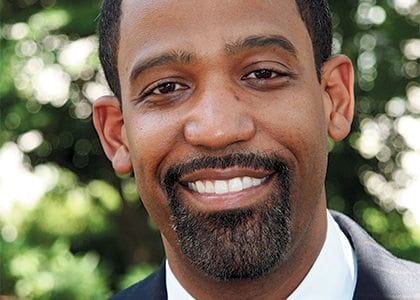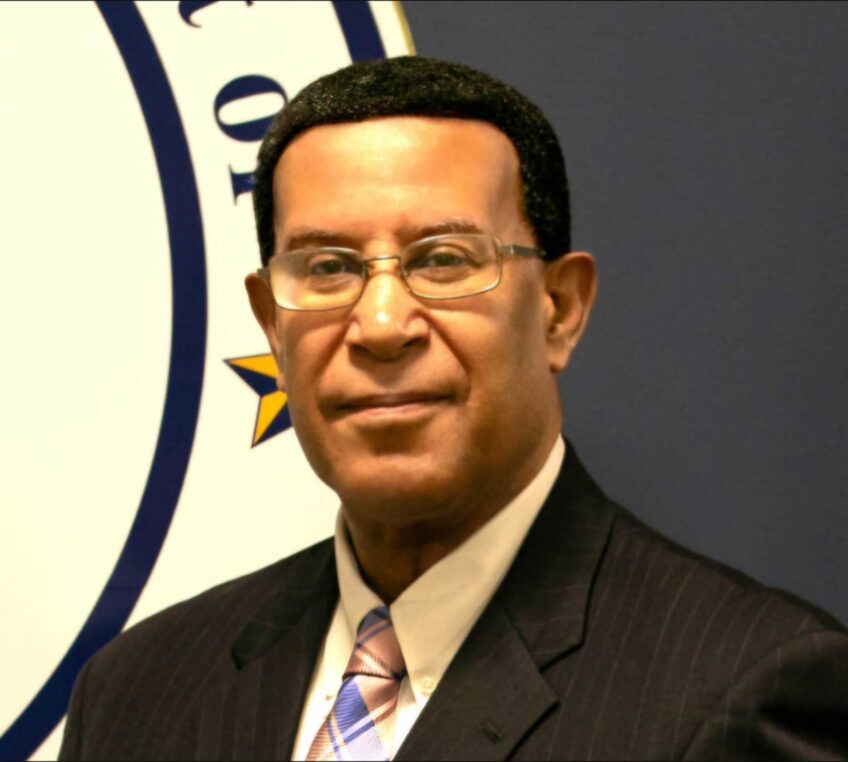
Beginning in the 1990s, prisoners on death row saw long-standing claims of innocence vindicated by DNA analysis of evidence that had been locked up for years. Inmates walked free into the arms of their families, at least those lucky enough to have anyone waiting for them outside the prison gates.
The spotlight shone on the judicial system by these cases, many of which raised serious questions about fair trials for African American defendants, resulted in more sweeping inquiries into charges of police and prosecutorial misconduct.
Nowhere was that more apparent than in New York City, where recently elected Brooklyn District Attorney Kenneth Thompson rode into office on a promise to review questionable convictions in murder cases.
Thompson’s Conviction Review Unit, touted as a model effort, took on over 100 cases that raised questions about what critics said was a winner-take-all attitude in Brooklyn’s police precincts and courthouses.
Close to 60 of those cases, prosecuted under former District Attorney Charles Hynes, were linked to former New York City Police Detective Louis Scarcella, who often used the same dubious witness to obtain convictions against predominantly African American defendants.
The profound power of the judicial system to upend lives and devastate families should never be exercised indiscriminately, says Harvard Law Professor Ronald Sullivan Jr., 48, a former Washington, D.C., public defender who helped revamp New Orleans’ public defense system in the wake of Hurricane Katrina. Thompson selected Sullivan in the spring to head up the review panel.
“Even before starting my work in Brooklyn, my research made it clear that wrongful convictions were certainly a significant problem nationally. It was also clear that in cases where convictions were up for review that many prosecutors’ offices looked first to vindicate their offices rather than engage in an honest effort to review their convictions,” said Sullivan during an interview in the dining hall at Winthrop House, a Harvard undergraduate dormitory where he and his wife, fellow Harvard Law School alum Stephanie Robinson, serve as co-masters — essentially surrogate parents to some 200 Crimson students.
Amid the clattering of trays and the buzz of conversation bouncing off marble floors and oak-paneled walls, the Gary, Ind., native and Morehouse College graduate said he brought no particular orientation to the task of organizing a robust office of 10 full-time prosecutors to review convictions — up from three under Hynes — just a desire to methodically comb through the files to see that justice was done.
“Much of my background is in defense,” said Sullivan, sitting at a long table with his wife and two sons. “I’m not a former prosecutor and hold no allegiance to prosecutors’ offices. That was a clear signal from the DA that he wanted someone to come in and take a fresh look at the cases. In too many review offices, it’s a case of the fox guarding the henhouse — justifying their colleagues’ actions rather than taking a full and honest appraisal.”
Since taking up the review, seven convictions have been vacated and 13 affirmed. A separate conviction review panel, headed by another independent counsel, reviews recommendations from Sullivan’s unit and files a confidential report with the DA, who then decides whether to take the case to a judge for final disposition.
Thompson, raised by a single mother who was one of the first black female New York City Police Department officers, became the first candidate to defeat a sitting Brooklyn district attorney when he triumphed over the entrenched white incumbent in the 2013 Democratic primary. As a former federal prosecutor, he won conviction against a NYPD officer in a notorious case in which a Haitian immigrant, Abner Louima, was tortured in the bathroom of the 70th Precinct in Brookyn. Later, working in private practice, he helped convince the U.S. Justice Department to re-open the investigation of the horrific 1955 murder of 14-year-old Emmett Till, whose lynching by white supremacists on a visit South from Chicago helped galvanize the civil rights movement.
Thompson has called the $1.1 million Kings County review process “a top priority because the people of Brooklyn must have confidence in the integrity of the criminal justice system. To give them that confidence, we must thoroughly and fairly investigate wrongful conviction claims, so that justice is done.”
In a recent case, Sullivan won exoneration for Gregory Hall, an accused murderer whose case file includes a receipt, apparently overlooked, proving that he was not in the city at the time of the murder.
“As far as we could tell, the defense was never given access to that document. Mr. Hall was convicted and spent many years in jail. He insisted throughout that he was innocent,” said Sullivan.
There was no evidence of deliberate misconduct, said Sullivan, but the case did raise questions about whether exculpatory evidence was being withheld — a common theme of misconduct.
“At one end of the continuum is actual malice — ‘I want to send this defendant to jail no matter what’ — and at the other is sloppiness because of overwork or some other reason. Wherever a prosecutor falls in that continuum, it’s no excuse for the courts to take away someone’s liberty.”
The high-profile reversals of convictions in such cases as the racially inflamed New York City Central Park jogger attack, in which five black and Hispanic teenagers were convicted based on coerced confessions, or the vacated Shawn Drumgold conviction for the 1988 murder of 12-year-old Darlene Tiffany Moore as she sat atop a Humboldt Avenue mailbox in Roxbury, have led to closer national scrutiny of prosecutors.
In many cases, police and prosecutors were found to coax or bribe witnesses, withhold evidence from the defense, or coerce confessions from the innocent. The uncovering of misconduct has led to calls to hold law enforcement officers more accountable for their actions.
The non-profit Center for Public Integrity looked at 11,000 cases of misconduct since 1970 and found that less than 50 percent resulted in any professional sanction for the prosecutor.
“What we’ve seen with DNA evidence exonerating so many has been an opening of the eyes of Joe Q. Public, who simply wasn’t aware of the problem,” said Sullivan.
“We know that some people who have been confined have been wrongfully convicted. We know that eyewitness testimony can be unreliable. And we can try to get to the bottom of it, even in cases where we are pursuing cases the old-fashioned way — without DNA evidence, reviewing case files, re-interviewing police and witnesses. The borough of Brooklyn should feel good about what’s going on. This district attorney is committed to making sure that no innocent people go to jail.”
Thompson’s review unit should be replicated in other offices, added Sullivan, saying a thorough re-examination of dubious cases is long overdue in jurisdictions across America.
“Every urban prosecutor’s office should invest in a real conviction review program,” said Sullivan. “When appropriate, it will free innocent people who shouldn’t be in jail and it ensures that citizens are much more confident in the integrity of our justice system.”






